There are very few environments as competitive as the South African IT distribution channel, so it comes as no surprise whenever we pose the question of how the year’s been so far at the half-way mark that the unanimous response is usually “Tough!”.
And this year looks to be no exception. Apart from the “usual” obstacles to be overcome such as a see-sawing exchange rate, supply chain constraints, the rising costs of transportation, clogged and inefficient ports, the cost-of-living crisis … the list goes on and on … the local channel had to deal with two other important disruptions: a local general election which, with the uncertainty around its outcome, saw a general freeze in spending among both corporate and government entities; and a sudden, totally unexpected improvement in Eskom’s load shedding, bringing to an abrupt end a mini-boom in alternative energy solutions which had briefly boosted the channel and which has now left many of its players with surplus stock.
But, as we’ve written for decades, you will struggle to find a more resilient bunch of people than the resellers and distributors that make up this channel. And, as always in the face of adversity, all of them display a sense of optimism about how the next six months of 2024 will unfold for them.
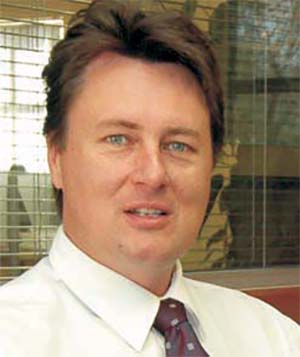 Pierre Spies, CEO of the country’s biggest distribution group, Alviva, says the channel has weathered the uncertainty storm of the first six months of the year and that the watchword for the remainder of the year is “caution”.
Pierre Spies, CEO of the country’s biggest distribution group, Alviva, says the channel has weathered the uncertainty storm of the first six months of the year and that the watchword for the remainder of the year is “caution”.
“Conditions in the channel are still fairly tough,” Spies says, “and the market sentiment remains one of a cautious approach.
“With the elections – and possibly load shedding – now a thing of the past we expect a more positive business outcome in coming months,” he adds. “Yes, the dust has not completely settled with the government of national unity (GNU) and there could well be turmoil heading our way, but we remain optimistic that the SA market will recover, albeit slowly.”
Spies says this is particularly true of the individual industry sectors that the channel relies on.
“The retail sector remains the most constrained in the market as consumers continue to feel the impact of ongoing inflation pressures,” he says. “The corporate sector took a ‘wait and see approach’ on the outcome of the elections and all indications are that we should see an increase in activity from this sector in months to come.”
Government spending too, in the build-up to the election saw a virtual freeze. Again, this is expected to thaw in the next few months.
And, Spies says, there are still opportunities for the channel to capitalise on in these sectors.
“We have seen some green shoots in cybersecurity and virtualisation stacks,” he says. “The market may be highly fragmented with the addition of various new vendors, but these two verticals still offer immense opportunity. Cloud computing is another opportunity. Worldwide cloud infrastructure expenditure grew by 21% to approximately $300-billion last year and there is no indication of it slowing down in the near future.”
Another opportunity lies in skills for those channel players who are willing to make the necessary investment.
“The increased complexity of markets such as I mentioned above has resulted in an unfortunate increase in skills shortages,” says Spies. “More and more corporates are looking for reliable skills and improved service levels.
“There are so many opportunities and my advice to resellers is to focus on their areas of expertise, and choose their battles carefully,” Spies adds.
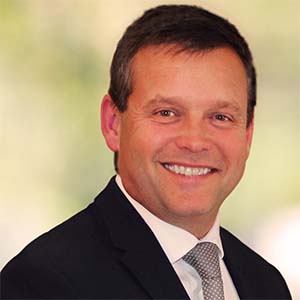 Tim Humphreys-Davies, CEO of Pinnacle, echoes Spies’ sentiments.
Tim Humphreys-Davies, CEO of Pinnacle, echoes Spies’ sentiments.
“The last quarter or so has been tough for the channel,” Humphreys-Davies says. “Government procurement has slowed and I think a lot of commercial projects have stalled due to the election and the general uncertainty in the economy.
“Resellers that I have spoken to are commenting that it is hard to get decisions on some of the larger orders in the pipeline and this has meant that the run-rate has slowed significantly,” he adds. “However, the election results are business-positive and we expect the commercial side of the market to bounce back soon .
“It’s a little too soon to predict when government orders will start flowing again as this may take some time,” Humphreys-Davies says. “I think most of the vendors in the market would also agree that the market has been very tough over the last two to three months.
“But we’re all hopeful about a rebound in business during the remainder of the year,” Humphreys-Davies says.
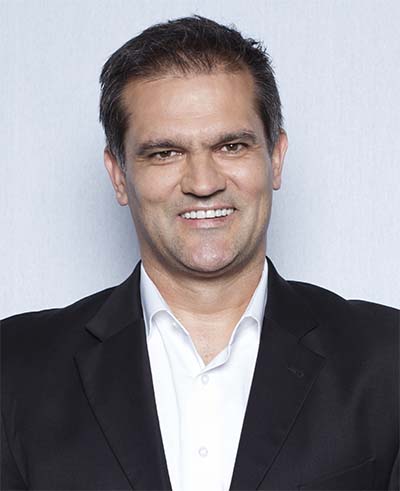 Mustek MD, Neels Coetzee, is another who says this year’s election had a definite impact on the performance of the local channel.
Mustek MD, Neels Coetzee, is another who says this year’s election had a definite impact on the performance of the local channel.
“The distribution landscape remains challenging due to a number of various factors, but there is little doubt that a pre- and post-election malaise hit the economy,” Coetzee says. “Public sector, SME and corporate spend still remains severely constrained and what we’re currently witnessing is spending on absolute necessities.”
Supply chain disruptions are another key factor that Coetzee spotlights.
“The situation at South Africa ports remains unresolved at present with continued long delays,” he says. “And compounding this problem is the fact that shipping costs have more than tripled over the last quarter – which only adds more pressure on distributors.”
Having said that, Coetzee is another channel executive who is cautiously optimistic about the remainder of 2024.
“There is, however, a glimmer of hope for the industry at the moment and that is the AI and the Copilot PC launch,” he explains. “In addition to this, PCs purchased during the boom period brought about by the Covid-19 pandemic are also now reaching the traditional four-year replacement cycle and will be up for renewal.
“There is a large installed base in corporate and SMB that is greater than four years old – and the promise of the productivity gains from AI will drive infrastructure and PC upgrades,” Coetzee says. “Not only does this drive opportunity for hardware refresh, but also for the enablement and training in the skills that are required in the market to apply these technologies responsibly, securely, and sustainably.
“As South Africans we are always inherently optimistic,” Coetzee adds. “We have been through these tough times before and they don’t last forever.”
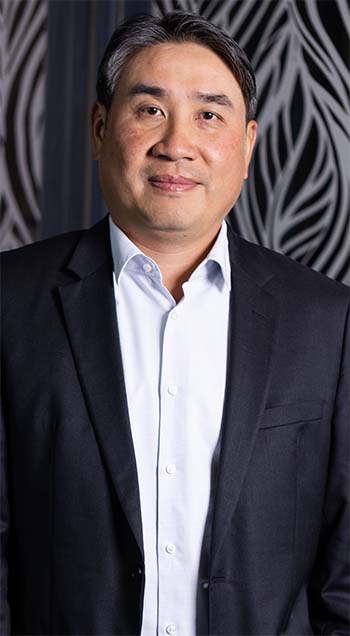 Spencer Chen, CEO of Rectron, says that while the first six months of the year haven’t exactly set the channel on fire, diversity in its product offerings has helped the company compete successfully.
Spencer Chen, CEO of Rectron, says that while the first six months of the year haven’t exactly set the channel on fire, diversity in its product offerings has helped the company compete successfully.
“Yes, times have been challenging,” Chen admits. “But I have to say that Rectron has had some great success with its solutions businesses such as data centre, point of sale, enterprise offferings and agricultural drones.
“I have always said that traditional distribution will continue to be a challenge and that adding value is the key to differentiating yourself.”
Chen says that the company has focused on products aimed at technology trends and demands, and is dedicated in assisting its resellers to attain the necessary skills and expertise to take full advantage of these.
“Take agricultural drones, for instance,” he says. “Climate change and increasing populations have driven the need for faster and more intelligent production in all agriculture. South Africa is no exception.
“As DJI is considered one of the leaders in this space we have secured distribution and are bringing these drones into South Africa to enable and assist the local agricultural market,” Chen says. “We also recently donated a DJI Agras T40 drone to the University of the Free States’ experimental farm in Bloemfontein to assist students in learning about agricultural drone technology – and also to provide a showcase for farmers in the area to experience how technology and innovation can help drive change and productivity.”
So what does Chen think lies in store over the next six months?
“The rapid growth of AI has started to have positive impact in people’s lives and in business,” he says. “Jensen Huang, CEO of Nvidia, says AI is the new industrial revolution and that, for the first time, the IT industry – valued at $3-trillion – is creating something that can directly serve industries worth $100-trillion.
“IT is no longer just an instrument for information or data processing, but a factory for generating intelligence for every industry,” Chen says.
“Rectron is working closely with our vendors on solutions that are developed on a daily basis for all different verticals and will, in turn, assist our resellers to upskill and deliver on these solutions to their customer base,” Chen adds.
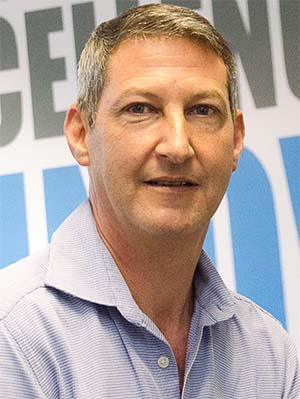
Craig Nowitz, CEO of Syntech.
Like their fellow distribution executives, Ryan Martyn, co-founder, sales and marketing director at Syntech, and CEO of the distributor, Craig Nowitz, are cautiously optimistic about market conditions improving – but they think it may take a little longer than anticipated.
“The market has been depressed, with retail in particular heavily affected,” says Martyn. “High interest rates have taken a severe toll on consumers. Additionally, the uncertainty surrounding the election in South Africa has led to a lack of investment across all sectors naturally impacting the market.
“We don’t expect a quick turnaround – even if interest rates drop,” Martyn adds. “While the remainder of the year is unlikely to be significantly more upbeat, we are hopeful for slow progress towards a more positive outlook over the next year or so.”
Nowitz is of the same opinion as his co-founder.
“The past six months have seen tough market conditions prevail,” Nowitz says. “However, as we look forward, I anticipate two rate cuts of 0.25 basis points each before the end of the year. Despite this, the market is unlikely to pick up until the middle of next year.
“Current market challenges also open up new opportunities,” Nowitz is quick to add. “For example, we have expanded our portfolio by picking up brands such as Wanbo, Minisforum and LG, and making our first foray into notebooks.
“In these tough conditions, vendors are seeking distributors who can add value and grow market share – and we are well-positioned to meet these demands,” Nowitz says.
